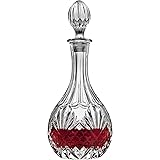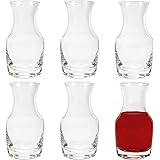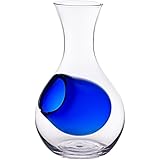Unveiling the Advanced Health Benefits of Red Wine: A Deeper Scientific Perspective
As highlighted in the video above, moderate consumption of red wine has garnered significant attention for its potential health benefits, aligning with observations often made on occasions like National Wine Day. Beyond mere enjoyment, the scientific community continues to explore how this ancient beverage, when consumed responsibly, may contribute positively to human well-being. This article delves deeper into the complex mechanisms and research underpinning these five key advantages, moving beyond surface-level observations to provide an expert perspective.
The Cardioprotective Efficacy of Red Wine
One of the most widely acknowledged benefits of red wine revolves around its impact on cardiovascular health. The Mayo Clinic correctly points out that specific antioxidants within red wine play a crucial role in safeguarding the integrity of the heart’s blood vessel linings. Specifically, red wine is rich in polyphenolic compounds such as resveratrol, quercetin, catechins, and anthocyanins. These potent biomolecules exert their cardioprotective effects through several pathways.
Primarily, they combat oxidative stress, a process implicated in the pathogenesis of atherosclerosis. Oxidative stress leads to the oxidation of low-density lipoprotein (LDL) cholesterol, contributing to plaque formation in arteries. Resveratrol, in particular, exhibits robust antioxidant properties, scavenging free radicals and reducing cellular damage. Furthermore, these polyphenols promote endothelial function—the ability of blood vessels to dilate and constrict—which is vital for maintaining healthy blood pressure and circulation. Imagine if your blood vessels, over time, lost their elasticity; this is precisely what these compounds help to mitigate, ensuring a more supple and responsive vascular system.
Longevity and the Mediterranean Connection
The assertion that moderate wine drinking could contribute to a longer life, as suggested by a study from the National Center for Biotechnology and Information, is not without substantial supporting evidence. This association is particularly pronounced when red wine consumption is integrated into a nutrient-rich dietary pattern, such as the Mediterranean diet. The synergy between wine and this lifestyle is compelling.
Resveratrol, a cornerstone polyphenol in red wine, has been extensively studied for its role in activating sirtuins, a family of proteins linked to cellular longevity and metabolism. These sirtuins are known to regulate various cellular processes, including DNA repair, inflammation, and energy homeostasis, all of which are critical for extending health span. When combined with the Mediterranean diet—characterized by an abundance of fruits, vegetables, whole grains, healthy fats, and lean proteins—the overall reduction in systemic inflammation and oxidative stress creates an optimal environment for promoting cellular resilience and, consequently, a longer, healthier life trajectory. Hypothetically, consider the cumulative effect of reduced cellular aging day after day; this is the subtle yet profound impact of such synergistic dietary patterns.
Cognitive Enhancement and Neuroprotection
The notion that red wine might sharpen the mind is a fascinating area of neurological research. Scientists attribute this potential benefit to flavonols present in red wine, which are believed to enhance cerebral blood flow. Adequate blood flow to the brain is paramount for optimal cognitive function and the prevention of age-related memory decline.
Beyond improved circulation, the polyphenols in red wine exhibit neuroprotective properties. They can cross the blood-brain barrier, where they exert antioxidant and anti-inflammatory effects directly within brain tissue. This protection can safeguard neurons from damage and support neurogenesis, the formation of new brain cells. Moreover, some research suggests that these compounds may influence neurotransmitter pathways, potentially enhancing synaptic plasticity—the brain’s ability to adapt and learn. To illustrate, imagine your brain as a complex highway system; adequate blood flow ensures all lanes are open and efficient, while neuroprotective compounds act as ongoing maintenance, preventing wear and tear and even building new routes.
Fortifying the Immune System’s Balance
Red wine’s capacity to boost the immune system is another significant health advantage stemming from its rich antioxidant profile. These compounds are instrumental in keeping the immune system “balanced and in check,” as the video notes. An overly active or underperforming immune system can lead to various health issues, from autoimmune disorders to increased susceptibility to infections.
Polyphenols modulate immune responses by influencing cytokine production, the communication molecules of the immune system. They can help dampen excessive inflammatory responses while simultaneously bolstering the body’s defense mechanisms against pathogens. For instance, the anti-inflammatory properties of resveratrol can alleviate chronic, low-grade inflammation, which is known to suppress immune function over time. Furthermore, emerging research points to the role of red wine polyphenols in shaping a healthy gut microbiome, which is intrinsically linked to systemic immune regulation. Consider the delicate equilibrium of an ecosystem; these antioxidants help maintain a similar balance within your internal defense system, ensuring it responds appropriately without overreacting.
The Psychological Uplift: Beyond the Physical
While often overlooked in discussions of health benefits, the psychological uplift provided by moderate red wine consumption is a genuine aspect of well-being. The 2014 study mentioned highlights that individuals who enjoyed a glass of wine, regardless of their immediate environment, reported similar levels of happiness as those in positive settings. This speaks to the inherent social and psychological rituals associated with wine consumption.
The release of certain neurotransmitters, such as serotonin and dopamine, can be modulated by alcohol in moderation, contributing to feelings of relaxation and contentment. Furthermore, the act of savoring a glass of red wine often encourages mindfulness and a temporary respite from daily stressors. It fosters a sense of ritual and tradition, promoting social bonding and relaxation, which are critical components of mental health. Imagine the subtle shift in perspective that a moment of calm can bring; red wine, in appropriate doses, can facilitate such moments, contributing to overall emotional resilience and quality of life.
In conclusion, the health benefits of red wine are multifaceted, extending from robust cardiovascular protection and potential longevity to enhanced cognitive function, immune system modulation, and significant psychological well-being. These advantages are predominantly attributed to its rich array of polyphenolic compounds, most notably resveratrol and various flavonols. However, it is paramount to reiterate that these benefits are exclusively tied to moderate red wine consumption, defined as approximately one glass per day for women and up to two for men. Exceeding these guidelines negates any potential health advantages and introduces well-documented health risks. Therefore, appreciating the nuanced science behind red wine health benefits necessitates a commitment to responsible and informed enjoyment.







